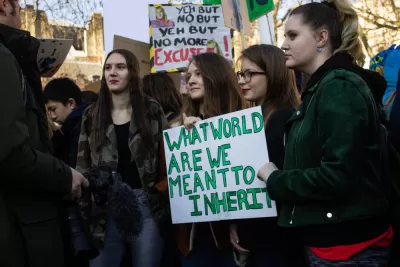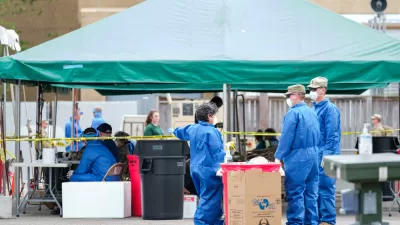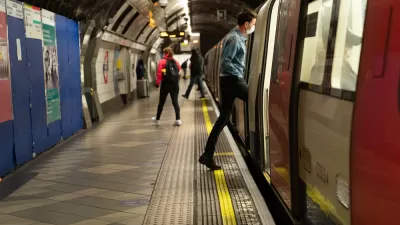Now that everyone understands what an exponential curve looks like, how it works, and how it brings life-threatening risk to their lives, it might be time to re-examine the realities of climate change, too.

Howard Kunreuther and Paul Slovic credit the coronavirus with teaching many more people in the world the concept of an exponential curve: “in which a quantity grows at an increasing rate over time, as the number of people contracting the virus currently is doing.”
Exponential growth is a hard concept for many people to grasp, according to Kunreuther and Slovic, until faced with the realities of a crisis. But the effects of climate change will work the same way, they argue.
And if there’s any silver lining in this mess, it’s that the coronavirus pandemic is teaching us a valuable lesson about the perils of ignoring destructive processes—and perhaps even larger, longer-term disasters—that increase exponentially. Even if growth looks mild in the moment—think of the earliest segments on an exponential curve like the red line shown in the illustration above—it will soon enough be severe. In other words, delay is the enemy.
The signs of exponential increase of carbon dioxide in the atmosphere are already there, according to the article. Like with coronavirus, delaying a worldwide response will have dire consequences in the future.
FULL STORY: What the Coronavirus Curve Teaches Us About Climate Change

Alabama: Trump Terminates Settlements for Black Communities Harmed By Raw Sewage
Trump deemed the landmark civil rights agreement “illegal DEI and environmental justice policy.”

Study: Maui’s Plan to Convert Vacation Rentals to Long-Term Housing Could Cause Nearly $1 Billion Economic Loss
The plan would reduce visitor accommodation by 25% resulting in 1,900 jobs lost.

Planetizen Federal Action Tracker
A weekly monitor of how Trump’s orders and actions are impacting planners and planning in America.

Waymo Gets Permission to Map SF’s Market Street
If allowed to operate on the traffic-restricted street, Waymo’s autonomous taxis would have a leg up over ride-hailing competitors — and counter the city’s efforts to grow bike and pedestrian on the thoroughfare.

Parklet Symposium Highlights the Success of Shared Spaces
Parklets got a boost during the Covid-19 pandemic, when the concept was translated to outdoor dining programs that offered restaurants a lifeline during the shutdown.

Federal Homelessness Agency Places Entire Staff on Leave
The U.S. Interagency Council on Homelessness is the only federal agency dedicated to preventing and ending homelessness.
Urban Design for Planners 1: Software Tools
This six-course series explores essential urban design concepts using open source software and equips planners with the tools they need to participate fully in the urban design process.
Planning for Universal Design
Learn the tools for implementing Universal Design in planning regulations.
Caltrans
Smith Gee Studio
Institute for Housing and Urban Development Studies (IHS)
City of Grandview
Harvard GSD Executive Education
Toledo-Lucas County Plan Commissions
Salt Lake City
NYU Wagner Graduate School of Public Service





























